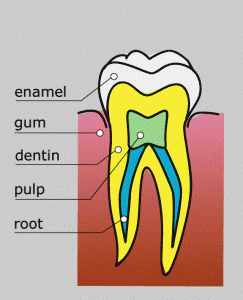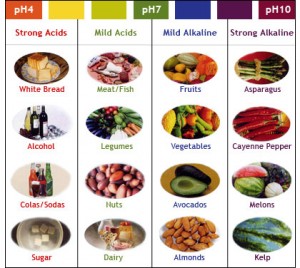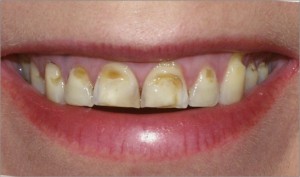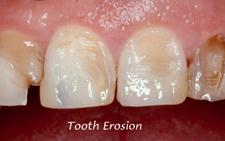Dr Nishan Dixit is the founder and principal dentist of Blue Court Dental. Patients enjoy his relaxed, friendly and gentle approach while experiencing his meticulous attention to detail. He has a special interest in providing smile makeovers, natural-looking white fillings and cosmetic braces, but also provides a range of treatments from preventative and general dental care to complex dental rehabilitation.
Latest posts by Dr Nishan Dixit (see all)
Most people would rather spend as little time in the dentist as possible and the best way to do this is to keep your teeth and mouth in as good a condition as you possibly can. Doing this ensures that you keep your dental costs as low as possible and keep your teeth for life, but there is one group of people who have a higher chance of developing tooth decay… Do you know who they are?
A recent survey has identified that people who eat small meals and snacks throughout the day are generally more at risk of developing oral health problems as this continual eating prevents the mouth from stabilising acid attacks.
Also in this survey it was identified that many dentists and dental hygienists are noticing that patients are not following oral healthcare recommendations, again this leads to oral healthcare problems. These problems can involve dental decay, gum disease and ultimately tooth loss-all of which can mean you end up spending more time and money at the dentist.
The issue is that your teeth are under constant attack and the only way to keep this attack under control is to combat it with good oral healthcare routines which can be provided by your dental hygienist.
We’ve placed the full details of the survey in an article below.
Blue Court Dental Centre in Harrow is your local dental practice dedicated to helping you achieve a healthy and bright smile with a range of treatment options and oral health care advice.
A New Survey by Extra Identifies How Modern Trends Impact on Oral Care
Dentists and hygienists* across the UK were polled alongside 1,000 consumers** by sugarfree gum brand Extra®to examine current oral health understanding and behaviour. Nearly half (42%) of the UK dentists and hygienists polled identified ‘grazers’ – people who eat small meals and snacks throughout the day – as one of the groups most at risk of developing oral health problems*. And the majority (84%) believe that awareness of the oral healthcare issues surrounding ‘grazing’ is low. Snacking, rather than eating three meals a day, prevents the mouths’ pH levels from stabilising and the acid attacks caused by food are more frequent and prolonged.
The survey also identified office workers as the worst culprits for snacking at their desks, with 40% admitting to snacking throughout the day**. People who drink wine or mixed long drinks three or more times a week (51%) and coffee shop regulars (23%)* were also high risk categories, suggesting how modern work and lifestyle trends are contributing to poor oral health habits.
The majority (79%) of dental professionals questioned believed that most patients are failing to follow even the simplest oral care recommendations – such as brushing for two minutes twice a day. Dentists’ concerns are substantiated by the consumer research, which revealed that a fifth of office based employees (21%) regularly miss brushing their teeth in their rush to get to work. And when they do brush a massive 88% fail to do so for the recommended two minutes**.
Louisa Rowntree, Wrigley Oral Healthcare Programme Manager, said: “These research findings demonstrate that consumers simply don’t understand that their teeth come under constant attack and the importance of committing to a daily oral care routine. Dental professionals recognise that sugarfree gum is a vital addition to brushing twice a day especially when consumers are away from home.”
“At Wrigley we continue to significantly invest in Extra, the UK’s number one sugarfree gum brand, with the launch of a new 46-pellet bottle. Its convenient size and shape means that it can be carried around in a handbag, placed in the car or simply placed on a desk in the office, and our aim is always to communicate the benefits of chewing sugarfree gum after eating and drinking.”
The new handy bottle format has also been proven to drive chewing frequency – a study in the US and China revealed that the more gum people carry on them then the more they chew***.
The benefits of chewing sugarfree gum are well documented and it is a clinically proven way to look after oral health whilst ‘on the go’. The science behind chewing is simple – chewing sugarfree gum after eating and drinking stimulates the flow of saliva which washes away food debris, helps neutralise damaging plaque acids and remineralise tooth enamel****. The proven benefits of chewing sugarfree gum provide a strong reason to recommend chewing sugarfree gum to patients.
*175 dentists surveyed on SurveyMonkey with distribution via Intentor. Both dentists and dental hygienists were polled. Survey was in the field between the 26th November 2012 and 6th December 2012.
**1,000 UK adults (aged 16+) surveyed 11th December 2012 by One Poll. OnePoll are members of ESOMAR and employ members of the MRS. Office professionals included in this research refer to respondents in full time work.
***U&AStudy China 2011
****Alcantara E, Leveille G, McMahon K, Zibell S. Benefits of Chewing Gum: Oral Health and Beyond. Nutrition Today, Volume 43, Number 2, March/April 2008
 Poor oral hygiene can affect your whole body, from your heart to your lungs to even your genitals! Take a look at the diagram above and then read on to find out what the likely results of poor hygiene are on your body. Perhaps you should think now about looking after your teeth and gums?
Poor oral hygiene can affect your whole body, from your heart to your lungs to even your genitals! Take a look at the diagram above and then read on to find out what the likely results of poor hygiene are on your body. Perhaps you should think now about looking after your teeth and gums?

 Gum disease, which includes periodontal disease, is inflammation and infection that destroys the tissues that support the teeth, including the gums, the periodontal ligaments and the tooth sockets (alveolar bone). Gum disease affects more than half of the adult population with natural teeth. It can be treated by a dentist or hygienist and in the early stages the effects can be reversed. There are two main types of gum disease:
Gum disease, which includes periodontal disease, is inflammation and infection that destroys the tissues that support the teeth, including the gums, the periodontal ligaments and the tooth sockets (alveolar bone). Gum disease affects more than half of the adult population with natural teeth. It can be treated by a dentist or hygienist and in the early stages the effects can be reversed. There are two main types of gum disease:

 The most effective treatment of bad breath is usually
The most effective treatment of bad breath is usually  Regular check-ups with your dentist will make sure any plaque is removed from your teeth. It will also ensure any signs of gum disease are noted and treated early on.
Regular check-ups with your dentist will make sure any plaque is removed from your teeth. It will also ensure any signs of gum disease are noted and treated early on.

 Other drinks include:
Other drinks include:
